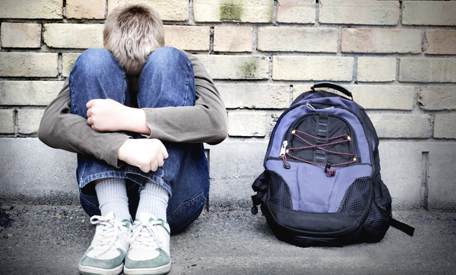Bullying and Depression: A Devastating Connection

Bullying Causing Depression
Bullying, a persistent and harmful form of aggression, can inflict profound psychological consequences on its victims, including an increased risk of depression. Understanding this connection is crucial for addressing the mental health implications of bullying and providing support for those affected.
Defining Bullying
Bullying encompasses a range of behaviors intended to cause physical, emotional, or social harm to others. It can manifest in various forms, including verbal abuse, physical violence, social exclusion, and cyberbullying.
The Link to Depression
Research has established a strong correlation between bullying and the onset of depression. Victims of bullying are more likely to experience symptoms such as:
* Persistent sadness and hopelessness
* Loss of interest in activities
* Difficulty concentrating
* Changes in sleep patterns
* Suicidal thoughts or behaviors
The chronic stress and trauma associated with bullying can disrupt brain development and alter neurochemical processes, increasing vulnerability to depression.
Research and Statistics
* A study published in the journal JAMA Pediatrics found that adolescents who were bullied had a 40% higher risk of developing depression compared to non-bullied peers.
* The National Center for Educational Statistics reports that over 20% of students in grades 9-12 experience bullying, with victims being more likely to suffer from anxiety, depression, and low self-esteem.

Real Life Impact
Case studies illustrate the devastating impact bullying can have on individuals. For example, Sarah, a high school student, endured relentless verbal and social isolation from her classmates. The constant harassment led to severe anxiety and depression, ultimately culminating in a suicide attempt.
Support and Resources
If you or someone you know is being bullied, it’s crucial to seek support. Resources include:
* School counselors and mental health professionals: Offer confidential support and counseling.
* Anti-bullying organizations: Provide resources and advocate for victims.
* Crisis hotlines: Offer immediate assistance and support in times of distress.
Coping Strategies
Victims of bullying can also implement coping strategies to mitigate its impact:
* Seek social support: Reach out to trusted friends, family, or a support group.
* Practice self-care: Engage in activities that promote well-being, such as exercise, relaxation techniques, or spending time in nature.
* Develop assertiveness skills: Learn to respond to bullying behaviors in a confident and assertive manner.
Bullying is a serious issue with far-reaching consequences for mental health. By understanding the link between bullying and depression, we can raise awareness, provide support, and create a culture where all individuals feel safe and respected.

